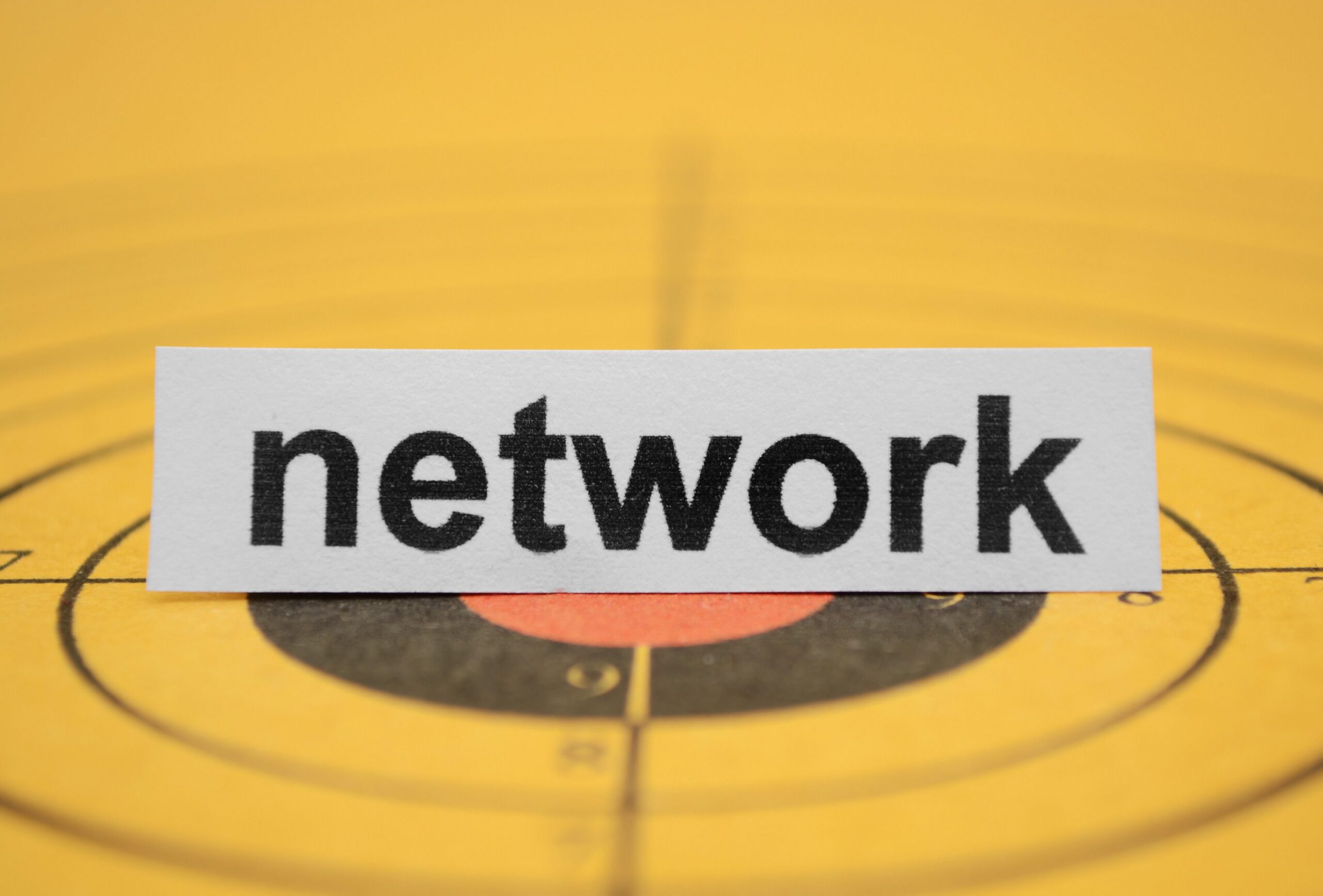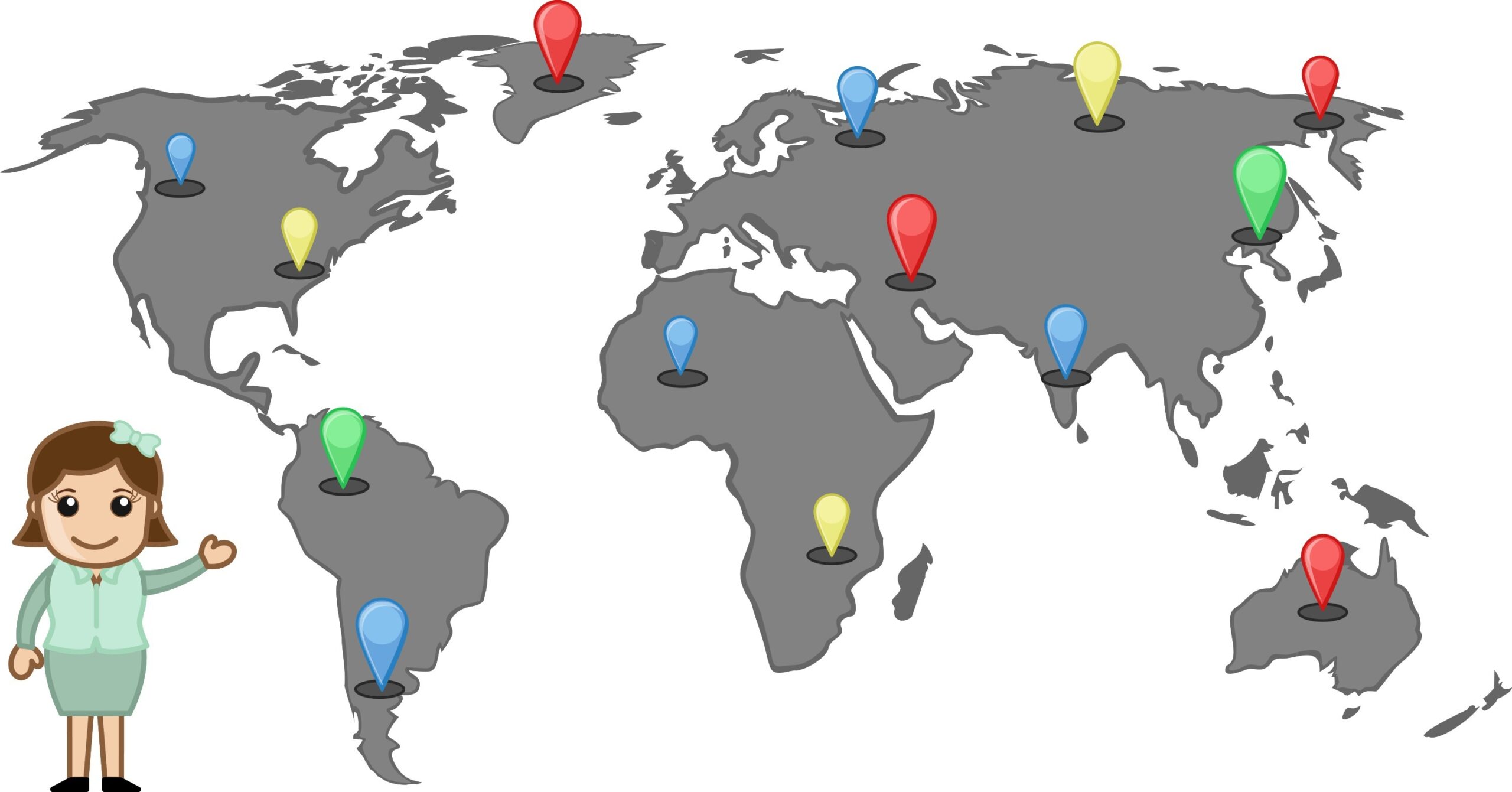Michael R. Pompeo, Secretary of State
Washington, D.C.
Press Briefing Room
SECRETARY POMPEO: Good morning, everyone. I know you’re happy to see me twice in two weeks. (Laughter.)
QUESTION: More. More.
SECRETARY POMPEO: More, yes. (Laughter.)
MS ORTAGUS: You never say that about me.
QUESTION: All the time, Morgan.
SECRETARY POMPEO: I just returned from Doha. I’ll talk about that in just a minute. Then tomorrow I’ll be in New York at the United Nations. I wanted to give you an update on a number of situations where America is once again serving as a force for good around the world.
Let’s start with our efforts, the State Department’s efforts on coronavirus. The State Department continues to support President Trump’s strong leadership and whole-of-government approach to protect Americans. There’s no higher duty for us.
I’m sure you’ve all seen the President’s briefings and updates from CDC and HHS, and the good news that Deborah Birx from our team here at the State Department is now serving as the White House Coronavirus Response Coordinator. She will do an excellent job for the American people. We’re proud to have her being part of that team.
The State Department has implemented aggressive travel restrictions, updated travel advisories, and worked with the private sector to ensure U.S. citizens and travelers are informed and safe. And as I said in my last press briefing, we’re helping other countries keep their people safe, too.
For instance, we’re working with Italy and South Korea – two countries that have been hit especially hard – to create effective exit screenings for passengers coming to the United States. We’ve also extended offers to help the Islamic Republic of Iran, and we hope that the Government of Iran will heed our offers of humanitarian assistance and medical supplies.
On Monday, our USAID announced $37 million in financing allocated for countries affected or at high risk of the Wuhan virus’s spread. That comes on top of the $100 million in humanitarian assistance and delivery of more than 17 tons of assistance that the United States has sent to the Chinese people back in January.
We are – the United States Government is – deploying humanitarian assistance and personal protective equipment to more than 25 countries around the world. This assistance, along with the vast amounts donated by our private sector businesses and religious institutions, demonstrate once again the immense generosity of the American people and the fundamental goodness of our nation.
Turning to Afghanistan: The signing of the U.S.-Taliban agreement in Doha, together with the realization of the U.S.-Afghan joint declaration in Kabul, laid the groundwork for the road ahead toward a lasting peace in Afghanistan.
We know that the road ahead will be difficult. We expected it; we were right. The upsurge in violence in parts of Afghanistan over the last couple days is unacceptable. In no uncertain terms: violence must be reduced immediately for the peace process to move forward. Indeed, President Trump discussed this very issue directly with Taliban deputy leader Mullah Berader on Tuesday of this week.
And while a reduction in violence is paramount, we also continue to press all sides to stop posturing, start a practical discussion about prisoner releases, knuckle down and prepare for the upcoming intra-Afghan negotiations. The future of this peace process isn’t just about what we do, or what the Taliban does. It’s about getting the Afghan people together to solve this problem that has plagued Afghanistan for now 40 years.
We, the United States, has opened a door for you, the Afghan people, to come to the table to determine the future of your country. We’ll stand with you; we’re ready to support you. Do not squander this opportunity.
In other news related, I received word this morning that the ICC Appeals Chamber authorized an investigation into the activities of the Taliban and U.S. and Afghan personnel there. This is a truly breathtaking action by an unaccountable political institution masquerading as a legal body.
It is all the more reckless for this ruling to come just days after the United States signed a historic peace deal on Afghanistan, which is the best chance for peace in a generation. Indeed, the Afghan Government itself pleaded with the ICC not to take this course. But the ICC politicians had other goals.
I will reiterate one more time: The United States is not a party to the ICC, and we will take all necessary measures to protect our citizens from this renegade, unlawful, so-called court.
This is yet another reminder of what happens when multilateral bodies lack oversight and responsible leadership and become instead a vehicle for political vendettas. The ICC today stumbled into a sorry affirmation of every denunciation made by its harshest critics over the last three decades.
Moving on to another event, which our team here worked hard to ensure a good result for the American people: The World Intellectual Property Organization election yesterday went in a way that will be good for the world.
I am pleased to congratulate Singapore’s Daren Tang on his election as the director general of the World Intellectual Property Organization. Mr. Tang is a thought leader on intellectual property issues, and a vocal advocate for transparency and institutional integrity. The U.S. looks forward to working closely with him to advance WIPO’s core mission of safeguarding intellectual property.
Secure property rights are critical for driving innovation, investment, and economic opportunity. U.S. companies are the world’s most innovative, so they’ll be – derive a great deal of benefit from Mr. Tang’s sure stewardship of this important institution.
Turning to China: Last week we applied a personnel cap on five Chinese state-backed propaganda outlets here in the United States. We took this action in service of President Trump’s mission to establish greater reciprocity in our relationship with China.
We expect Beijing to take a more fair approach towards American and other foreign press inside of China. Where the Chinese Communist Party has imposed increasingly harsh surveillance, harassment, and intimidation on our independent and world-class journalists, we will respond to achieve reciprocity.
A free press helps expose corruption and protect the people from cover-ups, as well as help the world understand the CCP’s thinking. As I said when I spoke to you last time, censorship can have deadly consequences. We urge the CCP to immediately uphold its commitments to respect freedom of the press.
A few other issues, starting with the Islamic Republic of Iran.
This past week, the IAEA issued two reports that the Islamic Republic of Iran is hiding nuclear material – its nuclear material and nuclear activities.
Iran is party to the Nuclear Non-Proliferation Treaty. Iran’s safeguard agreements under that treaty require it to declare nuclear material to the IAEA and provide the IAEA inspectors with full access to verify those sites and those materials.
Iran’s intentional failure to declare such nuclear material, as reported by the IAEA this week, would constitute a clear violation of its safeguards agreements required by the NPT.
The regime must immediately cooperate with the IAEA and fully comply with its IAEA safeguards obligations. All nations must hold Iran accountable to its commitments. Otherwise, the NPT isn’t worth the paper that it’s written on.
The IAEA’s latest reports are all the more troubling, because Iran continues to lie about its past nuclear weapons program, just as it has lied about downing a civilian airliner and its suppression of the extent of its coronavirus outbreak.
Given Iran’s prior covert nuclear weapons program and ignominious record of duplicity, any undeclared nuclear material or activities in Iran is an extremely serious matter.
The United States remains committed to denying Iran any pathway to a nuclear weapon. In light of Iran’s past nuclear weapons program, it is imperative that Iran verifiably demonstrate that it’s permanently abandoned all of its previous work.
Iran’s current expansion of its uranium enrichment program would have been permitted by the nuclear deal in 2031. Here again we see the shortsighted nature of that deal.
More immediately, seven months from now we will see the lifting of the arms embargo on Iran. The UN Security Council must act to renew the arms embargo before it expires.
And one final note on the Islamic Republic of Iran – we’re heartbroken by the reports from Amnesty International that regime security forces killed at least 23 children in the course of the November protests. The Iranian regime is truly an outlaw regime.
And with that, I’m happy to take a few questions.
MS ORTAGUS: Go ahead, Matt.
QUESTION: Thank you. Good morning, Mr. Secretary.
SECRETARY POMPEO: Good morning, Matt.
QUESTION: Thanks for coming down.
SECRETARY POMPEO: Yes, sir.
QUESTION: Just a couple very brief things. One, on the – Afghanistan, have you seen – other than the signing of the agreement on Saturday, have you seen any evidence that the Taliban have, in fact, renounced, shunned, broken ties with al-Qaida? And then on the ICC part of it, are – do you expect now to issue travel bans like you did for the prosecutor on the appeals court judges?
And then secondly, off the beaten track a little bit, but you mentioned it – the WIPO decision. This was a victory for the administration over China. And I’m just wondering if you see that that hope for your attempts to stem Huawei’s – if this is a signal that you think that there’s a recognition of that, the dangers. Thank you.
SECRETARY POMPEO: Thanks, Matt. I can’t say much about what we’ve seen the Taliban do in the aftermath since – what are we now? – a handful of days on, five days out. But we have seen the senior Taliban leadership working diligently to reduce violence from previous levels during similar time periods. And so we still have confidence that the Taliban leadership is working to deliver on its commitments.
We’re working to deliver on ours. Ambassador Khalilzad is in Kabul today working to develop the confines against which we will begin the intra-Afghan negotiations with, the work to get the prisoner releases, the prisoner exchanges as part of that conversation as well.
So everything we’ve seen in the aftermath of both the declaration that was made in Kabul and the agreement that was signed in Doha indicates that we are still tracking. We’re not naive. Everything’s got to be verified. There’ll be days when we stare at it and have to really drive this process forward. But we’re determined to do that.
Your second question was about the ICC. I don’t want to get in front of what actions we might take. But we’ve come to know this ICC as a truly political body. I know one of those Cs stands for court, and when we think about courts in America we think about independence and Article III. This is not that. And we have evidence suggesting that there has been – there have been efforts to provide misinformation to the court by foreign parties.
We’re going to take all the appropriate actions to ensure that American citizens are not hauled before this political body to settle a political vendetta. So I’ll – we’ll do some work. We’ll have some announcements probably in a couple weeks about the path that we’re going to take to ensure that we protect American soldiers, sailors, airmen, Marines, our intelligence warriors, the diplomats that have worked for the State Department over the years to ensure that the ICC doesn’t impose – doesn’t impose pressure on them in a way that doesn’t reflect the noble nature of the undertakings of every one of those Americans.
We have a solid system here in the United States. When there’s wrongdoing by an American, we have a process by which that is redressed. This ICC thing is not that.
And your last question was about the World Intellectual Property Organization. This wasn’t about defeating China. This was about the United States selecting the most capable candidate to deliver on intellectual property rights. We all know the history of China, and property rights, and intellectual property rights, right. They’ve stolen hundreds of millions of dollars of American intellectual property, harming citizens from Kansas to Iowa to Tennessee and Texas, destroying jobs here in the United States of America. The institution that sets the path forward at the UN is the World Intellectual Property Organization. We’re very pleased with the outcome from the election yesterday. We think Daren Tang, the candidate from Singapore, will do a fantastic job of creating the standards, the rule of law, the transparency that that institution deserves when it’s at its best.
QUESTION: Thank you.
MS ORTAGUS: Humeyra.
SECRETARY POMPEO: Hi.
QUESTION: Hello, Mr. Secretary. Thanks for doing this. I just want to follow up on what you said on the intra-Afghan deal, the intra-Afghan talks. How are you planning to overcome the difficulties around the prisoner release? Because as per the deal, this has to come, this has to precede the intra-Afghan talks that are slated to start on March the 10th. Could this push it forward? Obviously, that wouldn’t be such a surprise.
And my second question is: Why is there a discrepancy between the two texts, the one that was signed with the Taliban and the one that was signed with the Afghan Government? One talks about the feasibility of releasing a significant number of prisoners. The other one mentions a specific number, up to 5,000. Thank you.
SECRETARY POMPEO: Yeah, those – yeah, I appreciate that. Those aren’t remotely inconsistent. These were heavily negotiated documents. All the parties understand that it’s time for prisoner exchanges to take place. A number of the prisoners being held have served their full sentences. We need to move that process forward.
It will be political. Both sides think they have leverage. But what we have urged all the parties to do is stop posturing. It’s time to move forward. It’s time to reduce violence. It’s time to sit down and talk; not just the narrow interests that you happen to represent, but the interests of all Afghan people will be best served if we get this peace process right. We’ll have lots of voices being heard. There will be lots of different views. We know those will be hard-fought negotiations. It’s why it’s been 40 years that the Afghan people have suffered from these levels of violence.
The President’s guidance has been unmistakably clear. We’re going to do everything we can to assist the Afghan people at saving Afghan lives. Taking down violence in Afghanistan and in the region while making sure, every moment, that we protect the homeland from the threat from terror that might emanate from Afghanistan, just as we do trying to take down the risk of terror in Syria, from Iran, from lots of places around the world. We have an obligation to get that right not just in Afghanistan, but everywhere. And this process that we’ve now set in motion has the opportunity to do that, and to reduce costs and the risks that American soldiers will have to go there multiple times, continue to serve, and put their lives at risk.
MS ORTAGUS: Rich.
QUESTION: Hi, Mr. Secretary.
SECRETARY POMPEO: Hi, Rich. Good morning.
QUESTION: Good morning. Are you satisfied with the E3’s pace of addressing JCPOA violations?
SECRETARY POMPEO: No, absolutely not.
QUESTION: Okay. And would the United States then petition the UN Security Council for a snapback in sanctions on the JCPOA?
SECRETARY POMPEO: Yeah, I don’t want to get ahead of what decision we might ultimately make. No, we – look, there’s no secret. The reason I answered so quickly is there’s no secret. We’ve chosen a different path forward than the E3 has with respect to the JCPOA. That’s been public for an awfully long time.
Our view is this: Our view is to isolate Iran, to put pressure on the Iranian regime, to deny them resources to foment terror in Lebanon through Hizballah or in the Gaza Strip through Hamas and the PIJ, or the Iraqi militia – the Shia militias in Iraq. Those – that’s how we will ultimately convince the Iranian regime to change its behavior and provide an opportunity for the Iranian people to get the government that I know that they want. That’s our theory.
The theory of the case – the E3 has a different one. They think the JCPOA best serves that. That’s been a sharp disagreement. That hasn’t changed. But we are – have been very pleased. The E3 executed – or notified of the dispute resolution mechanism. That’s a good step forward. We think that’s positive. We hope that as we approach this big demarcation that occurs in October, the very missiles that put American lives at risk in Iraq and the very missiles that fell on Saudi Aramco can be lawfully sold by China or Russia to Iran come October of this year.
This is consistent with the JCPOA. This is the fundamental failing. Iran will be free to buy conventional weapons systems from any willing seller come October of this year, just a handful of years after this ridiculous nuclear deal was signed. We’re aiming to get that extended. We’re aiming to get it fixed. It is important. It’s important not just for the United States, but for European countries as well.
I’ll take one more.
MS ORTAGUS: Last question, Nick Schifrin.
QUESTION: Thanks, Mr. Secretary. I want to take you to Syria and —
SECRETARY POMPEO: Yes, sir. Sorry I didn’t see you back there. Thanks, Nick.
QUESTION: Sorry. I want to take you to Syria and Turkey, and those borders. Obviously, we’re watching the Russian president’s meeting with the Turkish president today. I wondered if you could talk about whether and how much the U.S. is willing to try and change the balance of power in both Idlib and between Turkey and Russia. So in Idlib, are you considering at all a Turkish request to take out Syrian air defenses? They’ve obviously asked for Patriot missiles. Are you in favor of providing those Patriot missiles? And overall, is this a moment where you believe the U.S. can try and distance, perhaps, Turkey’s relationship with Russia?
SECRETARY POMPEO: The President’s been pretty clear in his response. He spoke with President Erdogan just a few days back. I know that Russian and Turkish leaders are going to speak today. Our requirement is that they move back to the Sochi agreement back from 2018, that they too enter into a ceasefire in the region. As we know, hundreds of thousands of Syrians of all faiths, but predominantly Muslim, are being harmed by what the Assad regime, the Russians, and the Iranians are doing inside of Idlib. And the Turkish Government has asked us for a handful of things. We’re evaluating all of those requests.
Our team, along with the Department of Defense team, is trying to figure out how best to deliver less violence, more peace there, and stop the enormous humanitarian crisis that is – continues to take place. We had two of our senior leaders from the State Department on the ground there yesterday, I think it was, our time in Washington. Ambassador Craft and Ambassador Jeffrey were both there working to see how we can bring American and European resources to bear to mitigate this humanitarian crisis on the ground in Idlib and in the southern parts of Turkey.
QUESTION: And the Turkey-Russia part?
SECRETARY POMPEO: We believe firmly that our NATO partner Turkey has the full right to defend itself against the risk that’s being created by what Assad, the Russians, and the Iranians are doing inside of Syria.
MS ORTAGUS: Thank you, everyone.
SECRETARY POMPEO: Thank you, Nick. Thank you all. Have a great day, a great weekend too.
On March 2, 2002, the U.S. Government committed $37 million in financing from the Emergency Reserve Fund for Contagious Infectious Diseases at the U.S. Agency for International Development (USAID) for 25 countries affected by novel coronavirus COVID-19 or at high risk of its spread. This was the first tranche of U.S. Government funding committed from the pledge of up to $100 million announced by the U.S. Department of State on February 7, 2020. The U.S. Government also provided a delivery of more than 17 tons of assistance sent to the Chinese people in January.[1



